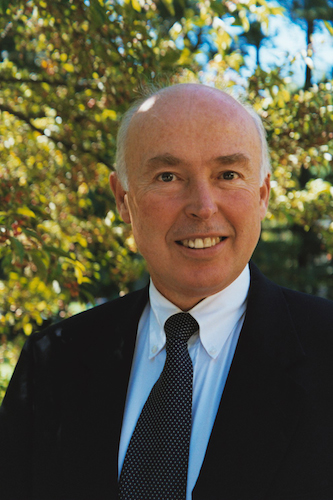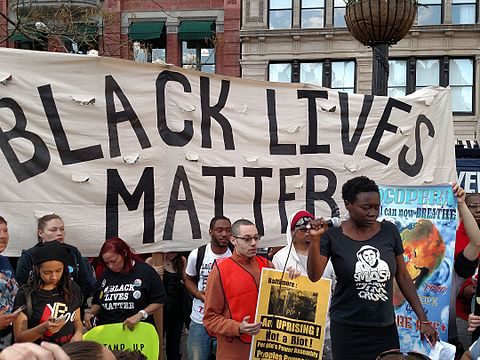In the previous article in this series, I spoke about pitfalls that the postmodern culture of narrative poses to faithful Christians. Another danger occurs when Christians fail to challenge the distorted morality of cultural narratives, but instead, ally themselves with the narrative’s supposed victims, while opposing and disparaging the supposed villains.
This is a particularly easy temptation for Christians to fall into. After all, our faith teaches us to give voice to the voiceless—to speak out for victims of injustice and oppression. Millennial evangelicals have a particular passion for matters of social justice, and this is admirable. The danger comes when we accept the definitions of “victim” and “villain” as characterized by the dominant cultural narratives.
Narratives are actually morality tales
Narratives are powerful because they are morality tales. Good and evil are clearly defined. They appeal to our innate sense of justice. As a result, they’ve fostered a social climate where so-called victims (and their allies) easily take on a holier-than-thou attitude, an almost pharisaical condescension towards so-called villains. Consider the irony: people abandon a transcendent standard of morality yet feel morally superior to others. This happens because their identity is wrapped up in a narrative in which they’ve cast themselves as the hero or victim. They’ve fallen for what Noah Rothman describes as “the intoxicating righteousness of victimization.”
 Angelo M. Codevilla provides a perspective on this impulse:
Angelo M. Codevilla provides a perspective on this impulse:
Confessing other people’s sins (real or imagined) and inflicting punishment on them has ever been human beings’ preferred path to feeling good about themselves. The more faults I find and the more penance I impose on thee, the holier I am than thou. The worse you are, the better I am and the more power I should have over you … Because feeling better about one’s self by denigrating and punishing others is an addictive pleasure the appetite for which grows with each satisfaction …
Christians can fall into this as well. If we don’t allow God’s transcendent standard of truth and morality to shape our thinking, we can easily fall under the sway of a highly distorted morality perpetuated by narratives.
Many evangelicals have uncritically accepted the distorted narrative of American history that I discussed in part 2 of this series. Who are the villains in this narrative? They are mostly Christians—specifically Puritan immigrants from England. Likewise, many have accepted the powerful “war between science and religion” narrative I wrote about in part 6. Who are the villains? Once again, they are Christians who reject “the fact of evolution” and are therefore irrational, superstitious and anti-science.
The narrative promoted by Black Lives Matter also makes Christians into villains. In June, we witnessed the horrific murder of 49 people at a gay bar in Florida. The shooter, a young Afghan immigrant, was explicit in describing his motivation. He had pledged allegiance to the terrorist organization ISIS. Yet within days of the event, on the Black Lives Matter website, the following statement was posted: “Despite the media’s framing of this as a terrorist attack, we are very clear that this terror is completely homegrown, born from the anti-black white supremacy, patriarchy and homophobia of the conservative right …” (italics added). Christians make up the majority of “the conservative right.”

Similarly, the powerful narrative promoted by LGBT activists and their allies in the media, business, government and the sports and entertainment industries casts Bible-believing Christians as villains. They are caricatured as homophobic bigots and haters—the moral equivalent of racists during the Jim Crow era.
In fact, nearly all of the most powerful narratives perpetuated in our postmodern western culture cast devout Christians—both past and present—as hateful, oppressive, homophobic, xenophobic, anti-science villains. I’m not aware of any Christian who wants—much less deserves—to be viewed like that. It can lead to real consequences—the loss of a business, a job, a reputation, etc. After all, villains must be called out and punished.
This creates a real tension for Christians. Many choose not to challenge popular and influential narratives, but to tacitly accept their morally skewed definitions of villain and victim, while recasting themselves as allies of victims. This is done by displaying sympathy and understanding to the supposed victims while drawing a distinction between themselves and those other Christians, past and present, which fit the stereotype and give the church a bad name.
It saddens me when Christians tacitly accept the wildly distorted caricature of Christianity portrayed by dominant cultural narratives. It angers me when they insinuate that they are somehow morally superior to those other Christians who, in their minds, have given the church such a bad name. All this does is tear the church apart, and I’m sure that those who create and perpetuate many of these powerful cultural narratives must be very pleased when they see this.
Rather, Christians must refuse to be defined by the dominant cultural narratives of our day. They must not allow themselves to tacitly accept their premises of good and evil, justice and injustice. Rather, they must exercise their God-given freedom by transcending these narratives, holding them up to careful examination and judgment based on facts and evidence, with God’s standard for truth, goodness and beauty as our ultimate point of reference.
– Scott Allen







2 Comments
Clark Dahl
August 29, 2016 - 3:29 pmI am curious why I am unable to share any of DNA’s articles on Facebook. Do they have you blocked somehow?
admin
August 29, 2016 - 5:02 pmHi, Clark.
Thanks for your interest and desire to share our posts. We have some issue with Facebook which we have not been able to solve to date. I assume it’s a technical glitch.
Until such time as we can solve it, one workaround is to select the URL of the post you want to share and paste it into the “What’s on your mind” box on your Facebook page. (And if you wait a moment, the window will populate with the post and you can then delete the URL you just pasted … in case you don’t want the clutter.)
Thanks again. Sorry I can’t be more helpful. I’m posting your question and this reply because we have had that question from others as well.
Gary Brumbelow